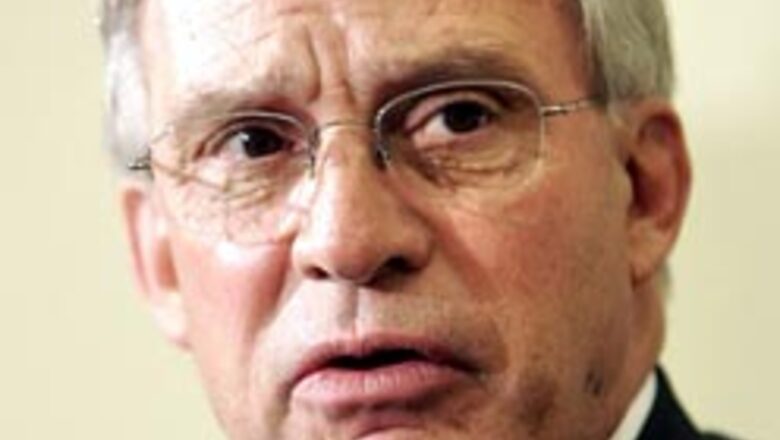
views
Washington: CIA chief Porter Goss, assigned to rebuild the US spy agency after the twin intelligence breakdowns of September 11 and Iraq, quit under pressure on Friday after less than two years on the job.
President George W Bush gave no explanation for the move, which a senior administration official said Bush had been discussing with Goss' boss, national intelligence director John Negroponte, for the last few weeks.
Administration officials told CNN on Friday that Air Force Gen. Michael Hayden, principal deputy director of national intelligence, would replace Goss. Sources also told The New York Times and Time magazine websites that Hayden was a leading candidate for the post.
Goss has come under fire inside and outside the agency during a difficult tenure.
Senior administration officials told The Washington Post that Bush decided to replace Goss months ago. Negroponte met with Goss last month and told him to prepare to leave by May, the newspaper reported on its website, quoting officials with knowledge of the conversation.
The president is pursuing a shake-up of his staff in an attempt to present a new face for his team and rebound from sagging poll numbers. He now faces the difficult task of finding a high-profile candidate prepared to take over an agency in turmoil.
The CIA lost clout when it fell under a newly created director of national intelligence as part of reforms in response to intelligence failures over the September 11 attacks on the World Trade Center and the Pentagon.
An administration official said tensions between Negroponte and Goss resulted as the new intelligence arm sought to assert itself over the CIA and met opposition from the spy agency.
Mounting tensions came to a boil when Negroponte decided that many counter-terrorism analysts from the CIA should be moved to the relatively new National Counter-terrorism Center that was created as part of intelligence reforms.
PAGE_BREAK
Goss objected because he believed that would erode the CIA's capability, an intelligence official said. "He was standing up for the agency."
At his confirmation hearing in September 2004, Goss said the CIA chief should have direct access to the president, a role the national intelligence director adopted for himself.
But he also pledged to restore luster to the agency where he once worked. "My attitude toward the intelligence community and, I guess, my alma mater, the CIA, is one of tough love," he told Congress.
The resignation resulted from a "mutual understanding" among Bush, Negroponte and Goss, the senior administration official said.
"The best way to describe it is when you ask somebody to do very difficult things during a period of transition, it often makes sense to hand off the reins to somebody else to take the agency forward," the official added.
The announcement was made in the Oval Office, with Goss and Negroponte by the side of the president.
"Porter's tenure at the CIA was one of transition. He's helped this agency become integrated into the intelligence community. That was a tough job. He's led ably," Bush said.
Goss quickly became the object of intense dislike among some career intelligence officers, particularly those in the clandestine service, who left the agency in large numbers.
"Thank God," was the reaction of one former senior spy who spoke on condition of anonymity. "It's gotten so bad there, it's just a charade at the moment. There's no senior leadership."
One intelligence source said, "You have to know how to transform the agency without making an enemy of it.



















Comments
0 comment